The number of Big Issue magazines sold has decreased by over one million over the pandemic.
In 2021, the company sold just over one and a half million copies, contrasting from 2019 numbers in which they sold over three million.
In 2020, faced with two national lockdowns, only 1,526,844 were sold.
Pete Lee, who sells The Big Issue outside Cannon Street Station in the City, said the pandemic affected his selling as fewer people commuted to work, and even fewer continued to carry cash.
The Stratford-based seller said: “I haven’t seen many of my regulars since the first lockdown… they were so nice before but some of them have stopped coming.
“People worry about us because they don’t know we are clean and they think we are carrying the virus, so they just stay far away.
“I understand it and I don’t feel upset because that’s not the person I am.”
He added: “My favourite part about selling The Big Issue is speaking to people and making friends.
“I will always be kind to people, no matter whether they are buying or not.”
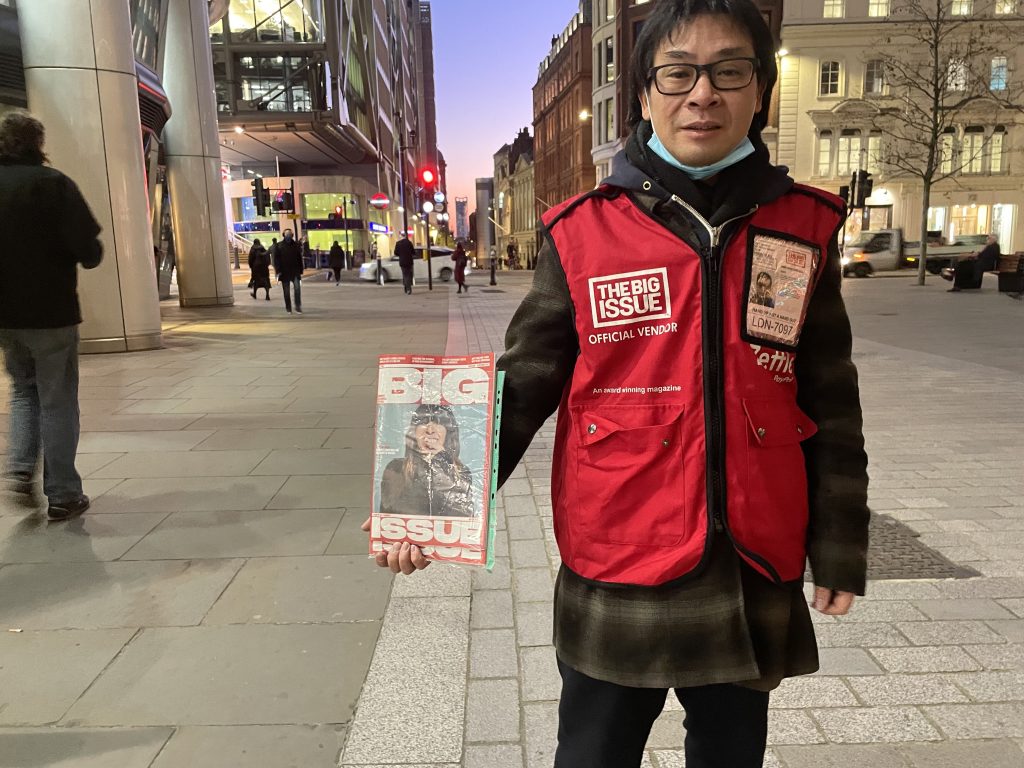
Launched in 1991 in response to the number of rough sleepers on the streets of London, The Big Issue offers those in poverty an opportunity to earn a legitimate income through selling a magazine to the public.
Vendors act as micro-entrepreneurs, buying the magazine for £1.50 and selling it for £3, and with each ‘donation’ buyers must take a magazine, so that vendors are working, not begging.
In it’s 30-year history around 105,000 vendors have collectively earned £144m selling 220 million copies of The Big Issue.
In March 2020, for the first time in two decades it was not produced and sold, removing the financial safety net of around 4,000 vendors.
Pete, who began working for The Big Issue whilst rough sleeping and is now in temporary accommodation, was given £50 a week to survive during the lockdown.
For the majority of vendors who are either rough sleeping, sofa-surfing or housed in temporary accommodation, this help was welcomed, but not enough.
Pete added: “I need around £60 a week for living costs, and I make very little money, but the money I have left, I save it.
“Anytime things could change – I could lose this accommodation and I’ll be homeless again.
“I had bad luck and I became homeless, so I have no choice but to change my life, make progress, otherwise I’ll always be like that.
“If I work hard, I know one day I will be a success.”
Even after vendors were allowed to sell again, they faced additional lockdowns, people working from home and cashless buyers – phenomena which continued throughout 2021.
The number of Big Issue sellers decreased from 4,099 in 2019 to 3,296 in 2021.
Now, after a Christmas period tainted by the emergent Omicron variant, vendors face a tough Winter ahead.
The Director of Sales and Operations, Chris Falchi-Stead, spoke of the difficulty vendors faced during the pandemic.
He said: “I’ll always remember exactly what happened, I got a call from [co-founder] John Bird right before the first lockdown saying we were going to have to take every single vendor off the streets.
“It was such a harrowing thought that we were going to have to deprive so many people of their livelihoods.”
Chris said that in addition to losing vendors to the coronavirus, many others suffered with their mental health during the pandemic: “The vendors were suffering from chronic loneliness.
“Their regular customers are their lifeline, they’re so used to seeing people, and having people check in on them and vice versa.”
To help bridge the financial gaps imposed by the pandemic, The Big Issue gave out over £1.3m as well as regular cash gifts and supermarket vouchers to aid economic survival.
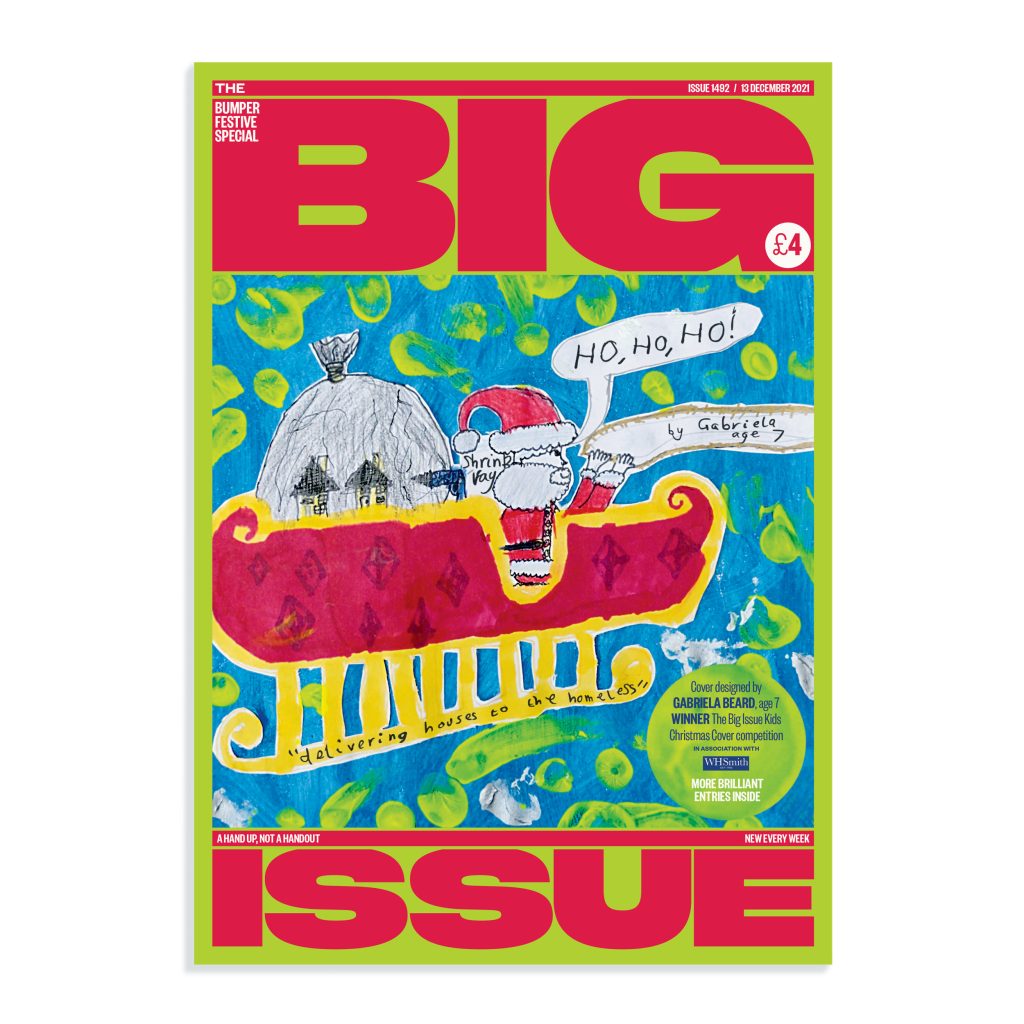
December is the busiest time of the year for vendors as more people are out on the streets of London, and across the UK, and a spirit of generosity fills the air.
But with the rising Omicron variant halting most Christmas excursions across the country and its capital, along with Plan B restrictions throughout January, vendors received less cash in hand and numbers of vendors decreased.
Now, due to a partnership with Zettle, more than 50% of the magazine’s workforce are cashless, helping them to include them digitally and financially.
Chris said: “It took a little bit of persuading vendors who were so used to relying on cash for buying the magazine, but the pandemic has really highlighted and exacerbated [the need for cash].
“Many of our vendors who were skeptical about going cashless were very much active in saying to us ‘I need help going cashless now.’”
You can support The Big Issue by buying from your local vendor, subscribing online, or donating to their Winter Appeal here.
Featured image credit: Honor Cockroft

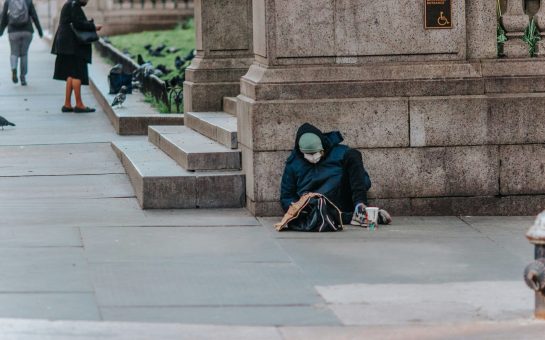
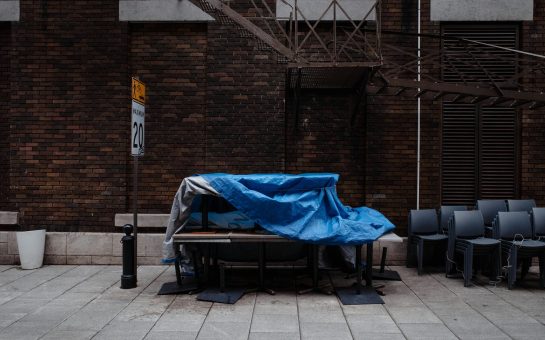
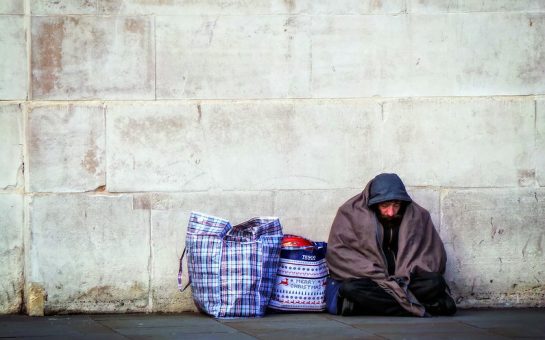

Join the discussion
They are amazing people , we need to learn to stop , talk and listen to strangers once more – it’s a basic human kindness and these people really need us .